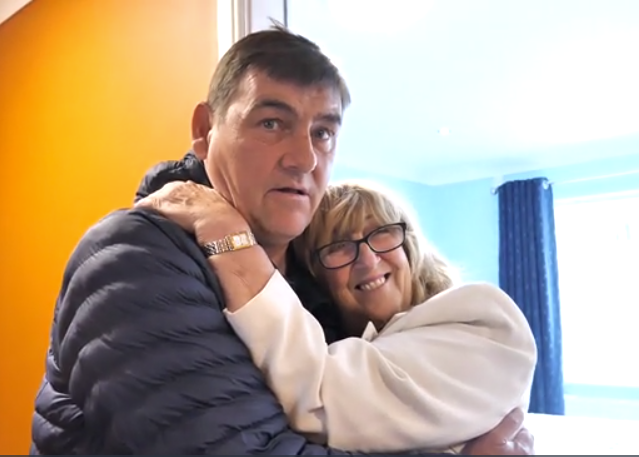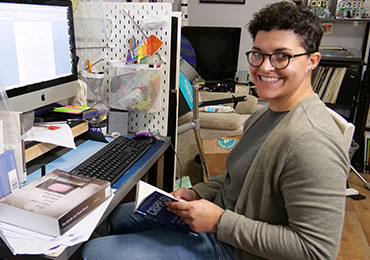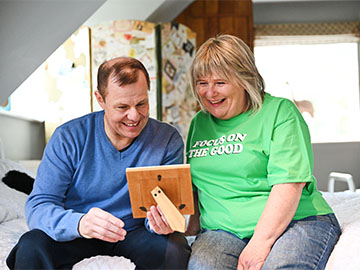Rich’s journey to remember
Rich* suffered a brain injury in November 2015. It is believed the brain injury was a result of a fall where Rich* banged his head, after taking legal highs.
Rich’s* past experiences
In the past, Rich* had dealt with homelessness and IV drug and alcohol abuse. However, at the time of the incident Rich* had presented free from these substances and was living in a warden-controlled flat.
Rich* was immediately admitted to an intensive care unit where he remained for a number of days until he was well enough to be transferred to a neuro-rehabilitation ward in December 2015.
Rich* was seen by a number of health professionals, including a psychiatrist, who verified that he was suffering from post-traumatic amnesia. The consequences of this was anxiousness, agitation and constant chewing on his fingers.
During his time in hospital, occupational therapists worked with him to try and familiarise him to people and his surroundings, however this proved significantly difficult. His behaviours began to increase alongside his head injury matrix score, which highlighted that Rich* was not adjusting well and little progress was being made.
Due to little progress being made, it was clear the hospital was not the right environment for Rich* to recover and improve.
Moving to our services
So in March 2016, Rich* moved to one of our specialist brain injury rehabilitation homes in Derbyshire, where he would receive 24 hour 1:1 support.
On his arrival, Rich* displayed high levels of agitation. His significant cognitive impairment, lack of communication, and his inability to recognise anyone from the past or present made it extremely difficult to get Rich* to respond to anyone.
Strategies we put in place to help Rich*
The staff had to be very inventive in the strategies to support him. For instance, one of the early hurdles was getting him to sleep in a bed, rather than on the floor, and to take his shoes off which, was a result of living on the streets for a number years.
Staff began by providing him with a sleeping bag and gradually moving it week by week to the bed, and eventually, he became comfortable with a bed and quilt. With the management of his anxieties and trust building, he will now remove his shoes.
Since residing at our services in Scotland, therapists working alongside staff in a MDT approach have focused on:
- Orientating Rich* to time, place, situation and person.
- Focusing on behaviour and social situations.
- Engaging in personal care.
- Managing his nutritional needs.
- Maintaining and supporting him to engage and have contact with family and friends.
- Maintaining and ensuring his safety in all situations by providing supervision at all times.
- Managing periods of high anxiety and recognising events to prevent this.
Supporting his journey
Rich’s* support and therapy rehab has complimented his recovery so far and his progress has surpassed all expectations. He is now able to spend very short periods of time alone independently; for example walking around the garden and being able to sleep without supervision.
One of his old friends visited him at the home and although he did not acknowledge him in the usual way you would when seeing an old friend, he simply tore the sandwich which he was eating in half and handed one half to his friend.
Staff have continued to recognise those little signs that indicate Rich* is responding more and more to his environment and his loved ones and expect to see a good level of progress this year.
You can find out more about our brain injury services here. Our friendly enquiry team can be contacted on 0800 0353 776 or referrals@voyagecare.com.
*Some of the details have been changed for confidentiality reasons.

 Brain injury rehab
Brain injury rehab  More success stories
More success stories 




